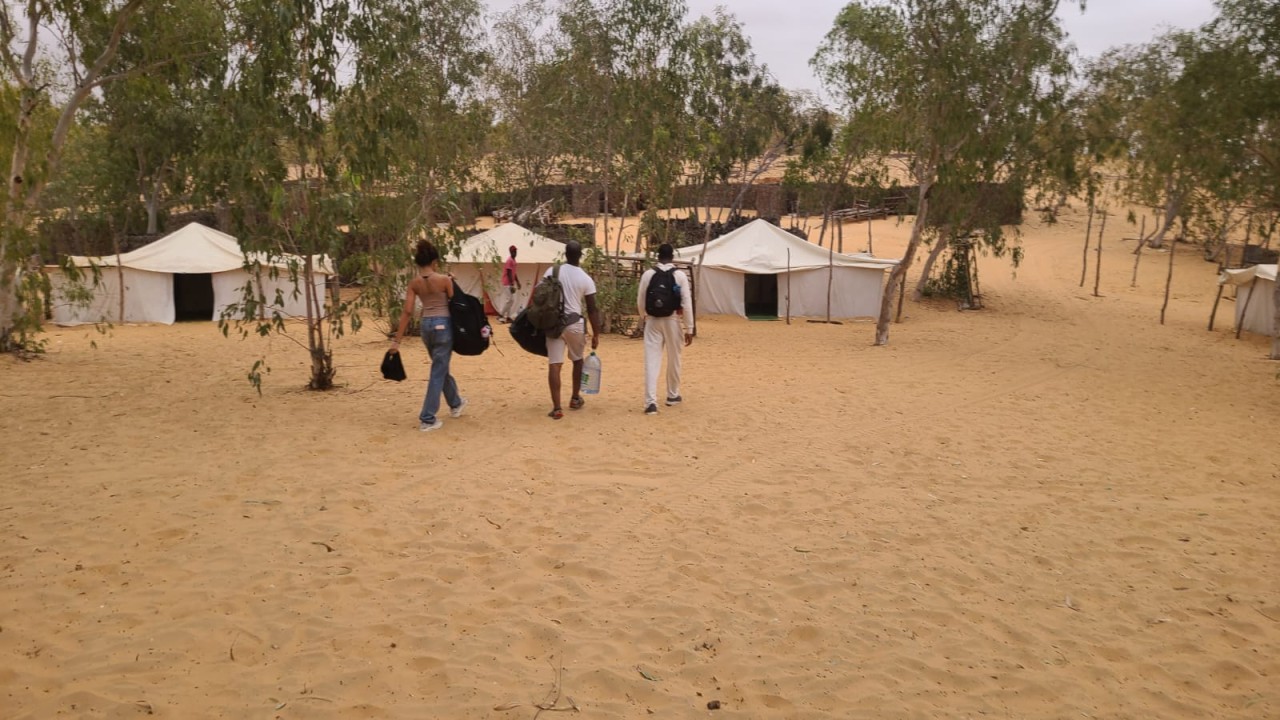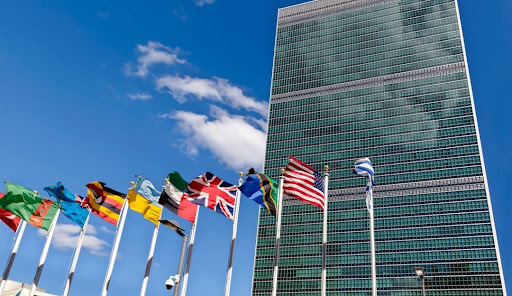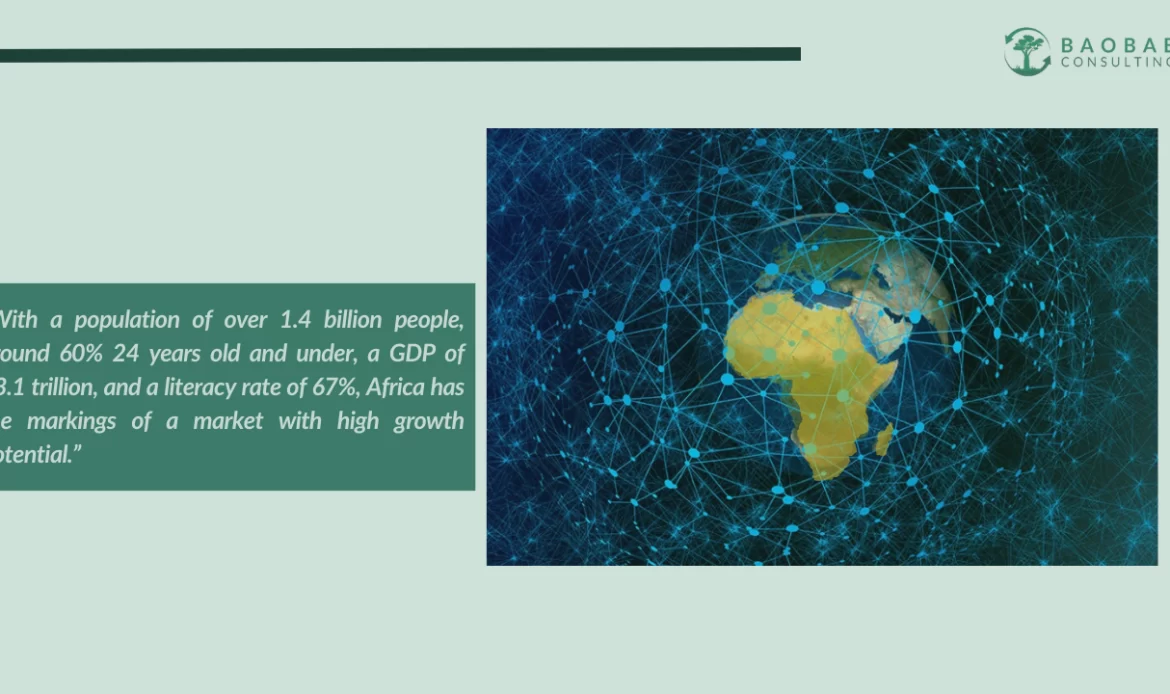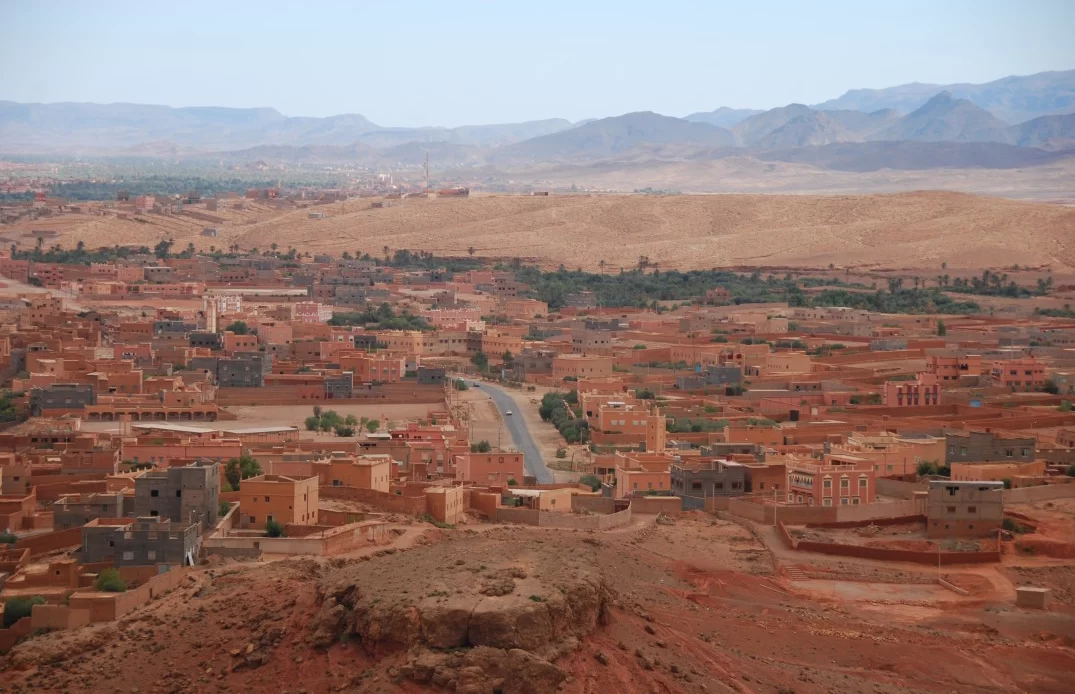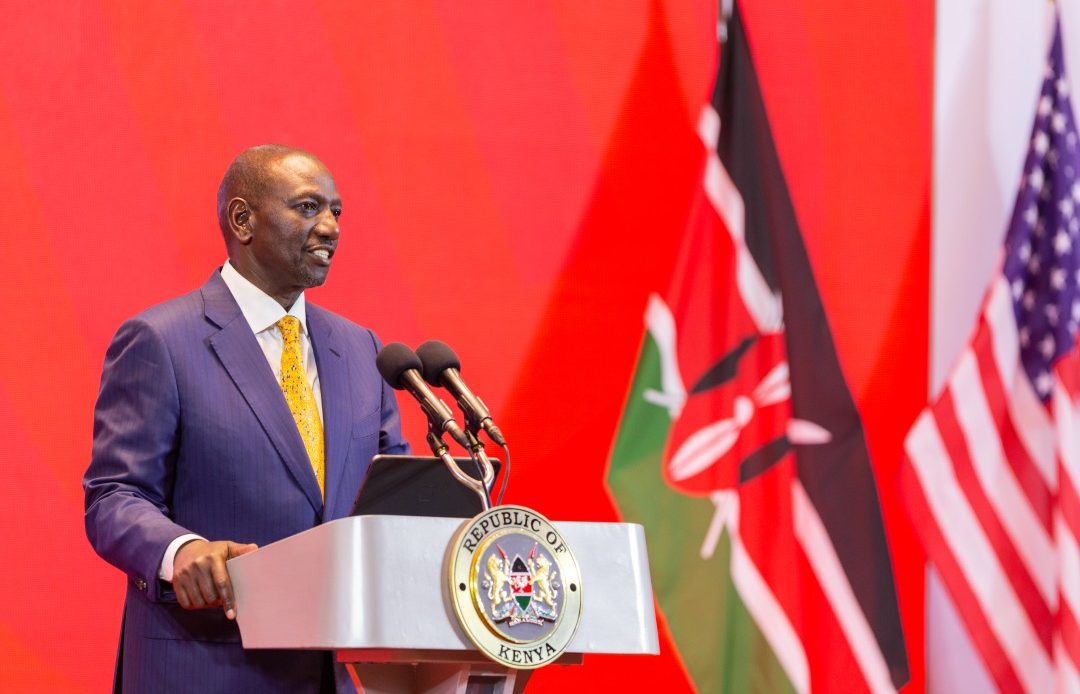Moutarou (Matou) Diallo is a Senegalese French teacher based in the United States. Over the last nineteen years, he has led over 100 trips for both American and African students to visit each other’s homes. Matou has worked in sustainable development, human rights, and education in a variety of African and American contexts for the past twenty years. He began his career with Tostan, and has also worked as a trainer for the Peace Corps, for the School for International Training and Council on International Educational Exchange. He has designed multiple programs in Africa for schools, teachers, donors and other stakeholders.
Learning English in Thiès, Senegal
I first became enamored with the English language and culture in middle school. When my secondary school English teacher used to invite the class to his house to show pictures of his trip to England. His classroom was English-only, which inspired me to understand this language. At the time, the internet did not exist so I relied on TV and radio to self-teach. I started to watch English programs like Khalil Gueye’s “Jazz Plus,” where he spoke in English and played American jazz music. I listened to the radio station “VOA” (Voice Of America) every day to develop my listening skills.
In 1992, I came to learn that some Americans had traveled to Thiès, Senegal to learn our local languages, such as Wolof and Pulaar amongst others. So, I approached the Peace Corps Training Center in Thiès and asked to be in contact with this program. Fortunately, since my family is Pulaar, we could apply to be a host family for the Peace Corps Volunteers and we began. This experience made English accessible and real to me: I was learning a foreign culture without even having to leave my house.
African and American Misperceptions of the Other
I have worked in the cross-cultural education field for decades and have led over 100 trips for American and African students to visit each other’s homes over the last 19 years. Throughout my career, I have learned that Africans and Americans must engage in intercultural travel in order to break through their misconceptions of the other. Unfortunately, Africans and Americans hold many misconceptions of the other that prevents equitable, educational cross-cultural travel.
Africans picture America as it is depicted in movies and other media. They believe that the United States is a land of abundance and opportunity, and therefore all Americans are wealthy. This leads many Africans to migrate but end up trapped in a system that they do not control, often living in poverty just further away from home. The process of travel should be organized and clean with a purpose. There are many ways to come to the United States, but only if you have a clear goal. Governments, schools, educational programs, or third party providers should sponsor Africans to travel to the United States on educational trips and learn about the realities of American life. Many migrants perpetuate the positive perceptions of America in an attempt to shield their loved ones and home communities from the realities of their lives in America. Africans already living in the United States must guide their fellow Africans and talk about their lived realities so that aspiring migrants can make better-informed decisions before their trek.
Many Americans, on the other hand, speak about Africa as a country. They associate Africa with poverty and danger. They often characterize the entire continent as war torn under unstable dictatorships. In their brief interactions with Africans, many may view them as poor scammers looking to exploit unsuspecting Americans.

Moutarou (Matou) Diallo leading a Black Birthright trip to Senegal, July 2022
Travel and Communication are essential for Cross-Cultural Understanding
As an African living in America, I have seen that poverty is rampant in America, too. The cost of living in America is extremely high, and many African migrants remit funds back home. Many struggle to live sustainably in the United States. Many Americans, too, live in poverty or beyond their means. Affordable, quality higher education is not always available, yet most well-paying jobs require high school or college degrees.
While the internet has allowed us to access one another within seconds, travel allows for real human connection. Cultural immersion is the best pathway to learning. Connections and conversations are how people learn about each other and then educate others about their experiences. Through travel, one puts on the shoes and garments of those who live there: they eat the food, walk the streets, and observe the benefits and perils of systems different from their own. For Americans, cross-cultural travel allows one to step out of their relatively privileged eco-system and into another system that may have less resources, less access, and a more fraught national history. These experiences can give Americans the opportunity to open their minds to the world that exists beyond their footsteps – one that may humble them and awaken them to their relative privilege on the global scale.
Africans who travel to America may feel shocked from its cultural differences, but can benefit from its opportunities and customs. Africans can elevate themselves through education, jobs, and other resources they may not have access to in their countries. Newly acclimated Africans in America must learn to live anew with their individual triumphs and traumas brought with them. The individual will undergo incredible character growth through this experience, including survival strategies and how to navigate new terrain. One who never leaves their home country never has to face and then overcome these challenges.

(Matou) Diallo leading BuildOn orientation in rural Thiès, Senegal, June 2022
International, cross-cultural, ethical tourism and travel can enrich mutual understandings between peoples born in different places. Nobody chooses their ethnicity or nationality at birth; we are all human beings. In this vast and diverse world, if we remain inside the confines of where we were born, we will disconnect from one another. This disconnect will perpetuate prejudices and result in negative judgments about one another. We can break this pattern by taking the time to live in each other’s shoes, even temporarily. We must ask ourselves one question when engaging with someone of another culture: What can I learn from them?

